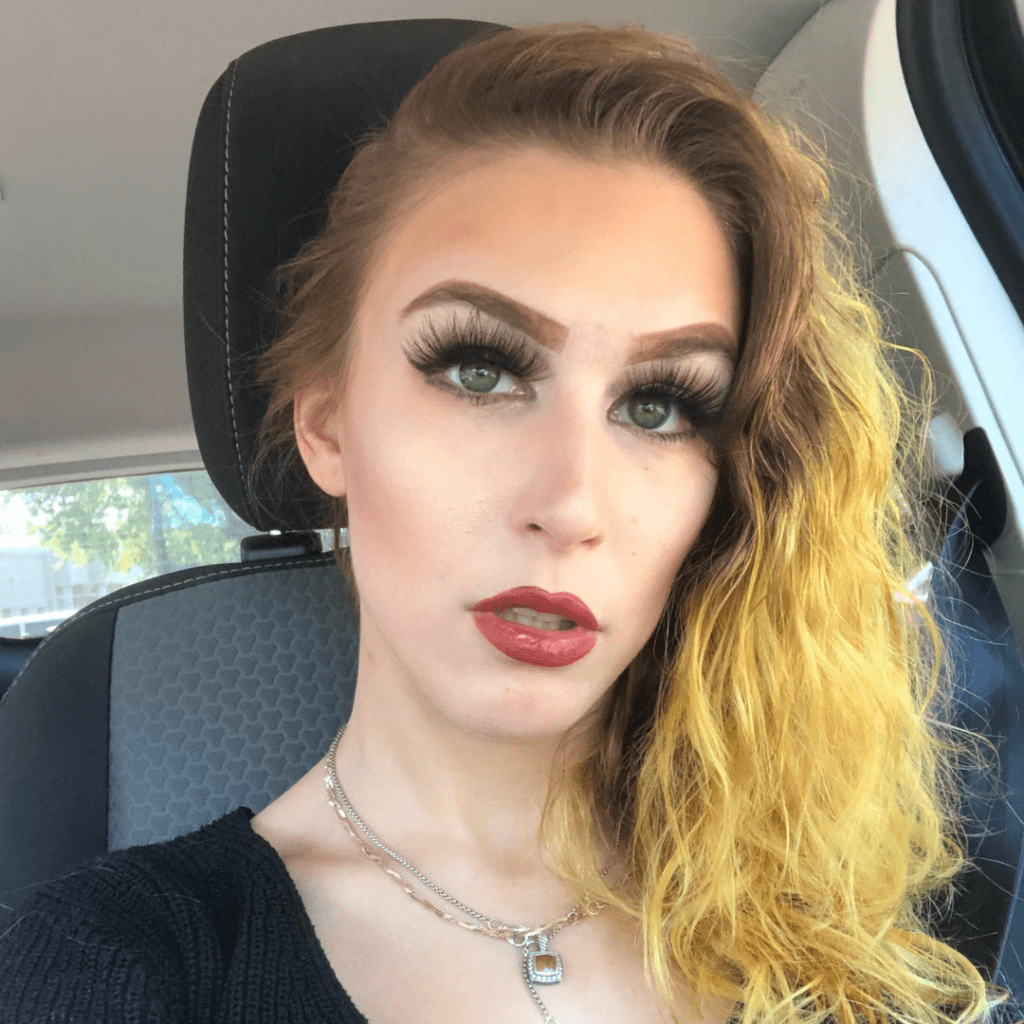Describe your life prior to diagnosis:
I was 85 pounds, struggling to keep food down, constantly itchy, and my hair was falling out of my head. I would go out with friends and always needed to know the location of the bathroom. I carried intestinal medicine to help me with gas. When I got into my 20s, I noticed that everyone’s “baby belly” had gone away, but, for how skinny I was, I still always had this basketball gut that made me self-conscious. I would often take naps due to migraines. My body was always exhausted. The brain fog heavily affected my career, to the point that I’d forget what I was talking about 10 seconds into a conversation. One day I couldn’t feel my hands and feet, and I could barely feel the ground when I walked around.
But doctors kept telling me it was all because of stress-related or anxiety-related disorders.
How did you come to know (or suspect) that you have celiac disease?
One day at my gynecologist’s office I kept saying, “I have extreme abdominal pains.” He tested me for polycystic ovary syndrome (PCOS) and did multiple sonograms before he noticed the weight loss. He did a simple blood test and called me back as soon as the results were in, explaining that I should get tested for IBS and celiac disease because he was pretty sure that was the cause of a lot of my issues.
How long did it take for you to get diagnosed since your first symptoms and what (if any) challenges did you face along the way?
The first real symptom where I noticed something was off and not just deemed “stress-related” was right before I got diagnosed; when I would go out with friends for drinks, I would drink vodka all night and be fine, but as soon as I took a sip of beer I’d be out for the count and have to leave early.
Describe your experience with living with celiac disease:
It was definitely hard at first, trying to find foods that are similar to “the real thing,” but what helped me a lot were gluten-free community boards, social media, and the support of my family, friends, and boyfriend, who all take into consideration that I have an autoimmune disease and that I need more care on some days than on others. Having a support system in all areas of my life, may it be my job, home, or social life, made a huge difference for me and made the transition to gluten-free life a lot easier.
Is there anything else you’d like to add to your story?
I wish that all the years I was undiagnosed and having all these issues that made my life hell on Earth could have been solved sooner. Doctors and people of all ages should be educated on the prominent symptoms of celiac disease. Everyone should be more open to getting tested or discussing it during doctor’s visits. I struggled with my weight, skin, mental health and body image for years. My gyno noticed after so many doctors had looked at me and said, “You’re fine, it’s just stress.”
Now that I am diagnosed with celiac disease, I state it everywhere I go. I work in the beauty industry and there have been so many times girls talked to me about the same things I was insecure about and I tell them my story of being diagnosed with celiac disease. A couple of times these same girls have come back to me and told me that they, too, are now diagnosed with celiac disease, that after going gluten-free their symptoms have cleared up, and that their parents are grateful for my education on it.
I don’t understand why the people with celiac disease are the ones to spread awareness when it should be something discussed as frequently as other diseases in the world.


